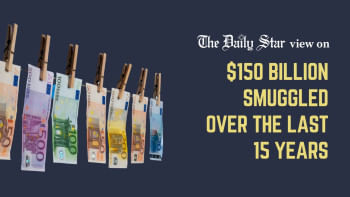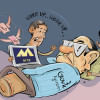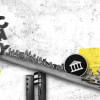Unearth all banking sector irregularities

Since the fall of the Awami League government, increasingly alarming information about the banking sector has begun to surface. Most recently, it was reported in this daily that Tk 45,000 crore is tied up in dubious loans. In a questionable practice, eight banks have provided loans to directors of other banks, posing considerable risks to the entire sector. According to their financial reports, loans totalling Tk 25,000 crore were exchanged among these eight banks for their directors by the end of 2023. In addition, four of these lenders provided around Tk 20,000 crore to the relatives of the bank directors. This means the total reciprocal loans sanctioned for these directors and their relatives amounted to Tk 45,000 crore, with most of these loans changing hands over the last five years.
It has been known for some time that the banking sector experienced massive irregularities under the AL government. However, the true extent of these irregularities—despite various issues being regularly reported—seems to be beyond anyone's wildest imagination. For example, these eight banks were known for their questionable practices and were allegedly linked to the recently ousted AL government. During Hasina's 15-year rule, powerful business groups with banking assets, including S Alam, Beximco, Nassa, and Sikder Group, thrived on murky politics and routinely bent banking rules, exposing the entire financial sector to serious risks. The names of these business groups have once again surfaced in relation to the irregularities that have occurred at these eight banks.
What is further concerning is that the combined contribution of the eight bank directors to the lenders' paid-up capital is only Tk 2,400 crore, or about five percent of the Tk 45,000 crore in loans they have taken from each other. Since most of these groups would have been unable to secure loans if their business practices and financial health had been properly assessed, and given that central bank rules prohibit a bank from lending to its own directors, they engaged in reciprocal lending. Moreover, many of these loans were approved based on the direct orders of the directors, with bank officials playing a minimal role, according to some mid-level bank officials. In other words, the bank directors essentially made up the rules as they pleased, putting depositors' and national interests at risk in the process.
However, it is unlikely that they could have carried out such risky manoeuvres without "managing" the regulator in one way or another. This represents another disastrous outcome of the politicisation of our regulatory authorities. Therefore, it is essential that the interim government continues to uncover such irregularities and identify those responsible for these corrupt lending practices. The truth about the health of our banking sector needs to be revealed, and those responsible for financial irregularities must be held accountable. Additionally, steps must be taken to protect depositors' interests and recover these loans from politically connected businesses and individuals.


 For all latest news, follow The Daily Star's Google News channel.
For all latest news, follow The Daily Star's Google News channel. 









Comments